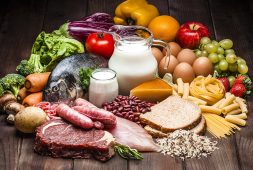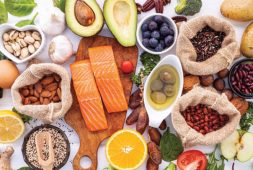Even if you’ve never tried it for yourself, it’s pretty impossible that you haven’t heard of the keto diet. But while this ultra-low carb eating plan allows you to shed off pounds incredibly fast, there are a ton of other side effects that you can experience as well – and they’re not all good.
For most keto diet followers, their diet is made up of 80% fat, 15% protein, with just 5% of their caloric intake from carbohydrates. This basically means that if your diet consists of 2000 calories throughout the entire day, only 100 of those calories will come from carbs – and that already includes vegetables and fruits. Eating this way will allow ketosis to occur, which is precisely what you want to happen in your keto diet. What ketosis does is it allows you to burn through all the carbs so that it can start to burn fat for energy instead.
Keto enthusiasts swear by this incredibly strict high-fat, low-carb diet method when it comes to weight loss, but there are other secondary effects that you might not know. While a number of these side effects are positive ones, there are some that are downright awful – even dangerous – when not handled properly.
Here are 15 common keto diet side effects that you should be aware of before you try it out.
- You Could Get “Keto Flu”
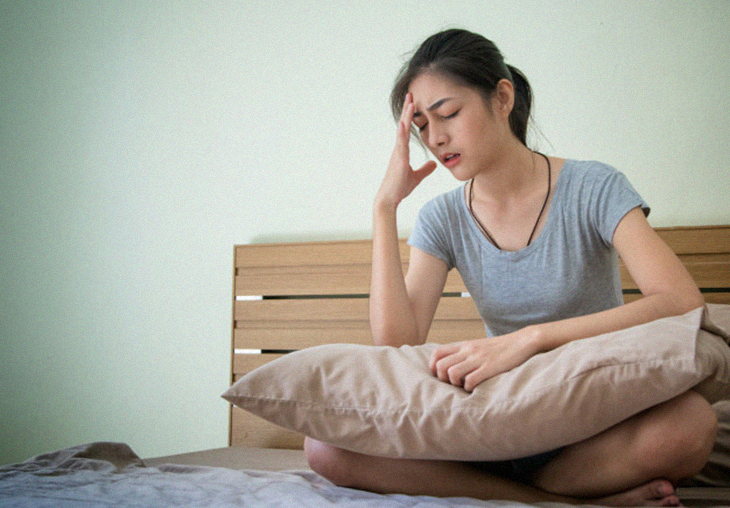
People hear about this and assume it’s just a fluke but keto flu is a real thing. By cutting out large portions of carbs from your diet in order to reach ketosis – the act of your body burning fat for energy – it can change the way your body feels, bringing on flu-like symptoms such as fatigue, headaches, nausea, muscle aches and diarrhea. According to the author of The Ketogenic Diet, one of the main reasons why this happens is because your body is going through a change from using carbohydrates as its main source of energy, and using fat instead, shares, Kristen Mancinelli, M.S., R.D.N. When the body finally adapts to using fat as its main source of fuel, which can take between a week or two, those flu-type symptoms will go away.
- You Might Feel Moody
Unfortunately, low carb diets also mean that you might not have enough carbohydrates in your system to produce serotonin – the chemical in the brain that’s in charge of regulating your mood, sleep and appetite. Therefore, this may also affect your overall disposition, explains registered dietitian and nutrition therapist certified intuitive eating counselor, Laura lu, R.D., who is based out of New York City.
- Your Eating Behaviors Will Probably Change
When you cut out the carbs from your diet, your body releases a chemical called neuropeptide-Y (NPY), which is in charge of informing the body that you need carbs. When you don’t answer this call to eat carbs, the hormone builds up, intensifying one’s cravings, as well as increasing the risk of binge eating. According to lu, “It has nothing to do with not having enough ‘will power,’ it’s more to do with the body’s biological response to deprivation.”
- Initial Weight Loss Might Come Back
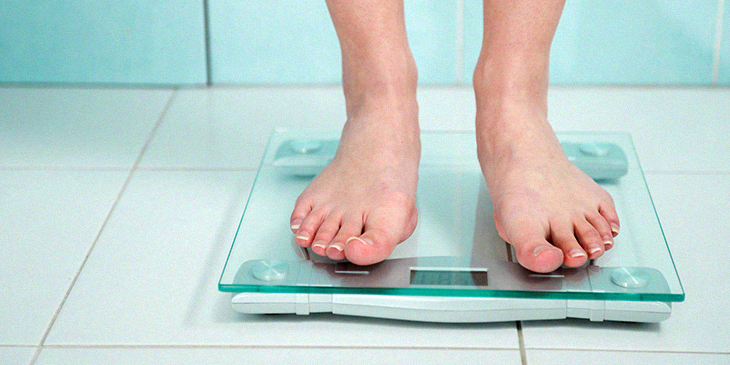
The keto diet is popular precisely because its users often see immediate results. But along with the first slim down is the chance that those originally shed-off pounds could possibly come back. One reason behind this is because ‘carbs usually hold on to more water than protein or fat,’ explains clinical dietitian at Watertown Regional Medical Center, Becky Kerkenbush, R.D. When you stop eating carbs, all the excess water normally gets released when you pee, which will show as lost weight on a scale, even giving the illusion that your body has gotten slimmer. The initial weight loss is usually water, yet when you stick to it, it doesn’t take much longer to shed real pounds. The problem is some keto diet users get side-tracked once during the first sign of weight loss, assuming they can bet on those pounds to be gone. When this happens, many end up going back to regular programming and gaining that initial weight – if not more – back.
- You Can Get Constipated
People that go on the keto diet can experience issues with constipation. This is because lessening carbohydrates also means lessening your intake of high-fiber foods including beans, whole grains and bigger servings of fruit and vegetables, explains Seattle-based nutritionist and spokesperson for the Academy of Nutrition and Dietetics, Ginger Hultin, M.S., R.D.N.
Since your body is already excreting more water as well, add to that the lack of fiber and there are high chances of constipation. In order to lessen the chances for this to happen, author of Diet Diagnosis, David Nico, Ph.D. suggest that you add in keto-friendly foods into your diet like nuts, avocados, and other non-starchy veggies and berries in limited quantities. And of course, increasing your water intake will also help.
- Or, You Could Get Diarrhea
On the other side of the spectrum, there’s a chance that you could experience diarrhea as well. According to lu, “When we eat foods with fat, our liver releases bile into the digestive system to help break it down. Following a high fat diet like keto means that the liver needs to release extra bile – and bile is a natural laxative, so too much can loosen stool and speed up how fast it moves through your system, leading to diarrhea.”
- You Can Get “Keto Breath”

One rather annoying side effect is “keto breath.” When a person’s body goes into ketosis, it starts to produce by-products that are known as ketones. The same chemical found in nail polish remover, acetone, is produced by the body naturally. “One of the ways ketones are released from the body is through exhaling, and breath usually has a distinct odor that’s different than the common bad breath experienced when there’s a build-up of bacteria in the mouth.”
- You’ll Be Parched, A Lot
People that are on keto share that they often feel parched. Because the state of ketosis also causes a lot of water to be excreted from the body, it will create an increase in thirst, which is why it’s important to drink more water, recommends Mancinelli. While there isn’t an exact amount of water given to drink for those on keto, dieters are advised to drink enough to make sure that their urine is either clear or a very pale yellow. If you notice that it’s dark in color, it means you need to drink more.
- But You Might Not Be As Hungry
While weight loss requires one to fight food cravings and deal with hunger pangs, some people don’t feel as hungry when they are on keto. In fact, an analysis of 26 studies actually shared that people actually say that they have a highly diminished desire to eat when they do keto. While experts can’t exactly say why this occurs, many assume that it’s due to low carb diets suppressing the production of hunger hormones known as ghrelin.
- You’ll Have Nicer Skin

One side effect that a number of keto dieters actually enjoy is that their skin actually gets nicer. This is especially true for those that were self-professed sugar addicts, suddenly going sugar-free. One of the main effects of having too much sugar is actually bad acne, since it tends to trigger inflammation and also releases hormones that cause extra oils to be released, clogging up pores. Other studies also suggest that lessening carbs results in much nicer skin.
- Some Have Less Brain Fog
The one thing about sugar, especially refined sugars that are found in pasta, white bread and rice, as well as sugary drinks and other sweets cause one’s blood sugar to both spike and dip. Therefore, there’s no question that eating less sugar puts the body in a much better state. Mancinelli also shares that for otherwise healthy folk, they tend to feel more energized and also claim that they feel less brain fog, as well as less sugar cravings too.
- Others Claim Brain Fog Worsens
Unfortunately for some, they claim that their brain fog actually gets worse. But according to lu, this is a normal occurrence. “Our brains need the right type of carbohydrates for energy, and someone who is following a low carb diet may not have enough of these carbs, which can contribute to brain fog and difficulty concentrating,” she adds.
- Your A1C Levels Can Get Better
For dieters that have diabetes, the ability to control your blood sugar means that you can also lower your A1C levels, which are the measurements of glucose in your blood. This can also lead to less insulin intake for those practicing ketogenic diets. Of course before attempting to lessen or stop your insulin use, be sure to always consult with your doctor first!
One caution about doing ketogenic diets while diabetic is that it ups the chances for diabetic ketoacidosis. This is actually a life-threatening condition that occurs when fat gets breaks down too fast, causing blood to become acidic. While it is more likely in those that suffer from type 1 diabetes, people that have type 2 yet do keto need to talk to their doctor about these risks.
- Your Kidneys Might Be Stressed
While kidneys play an incredibly important role in metabolizing protein, there is a chance that having too much protein can also negatively impact kidney function. Manicelli says that while this type of diet is much higher in fat than it is in protein, a number of keto dieters also mistakenly eat too much meat. And because of this, keto users end up eating more protein than they actually should.
Again, the tricky part is actually knowing just how much protein is the right amount before it begins to cause problems. Hultin goes on to explain, “It really depends on how much protein a person is consuming versus how much they need, as well as the health of their kidneys at baseline.” This is also why it’s very important to speak to a nutritionist doctor in order to prepare just the right keto diet for you.
- Heart Disease Risk Factors Can Vary
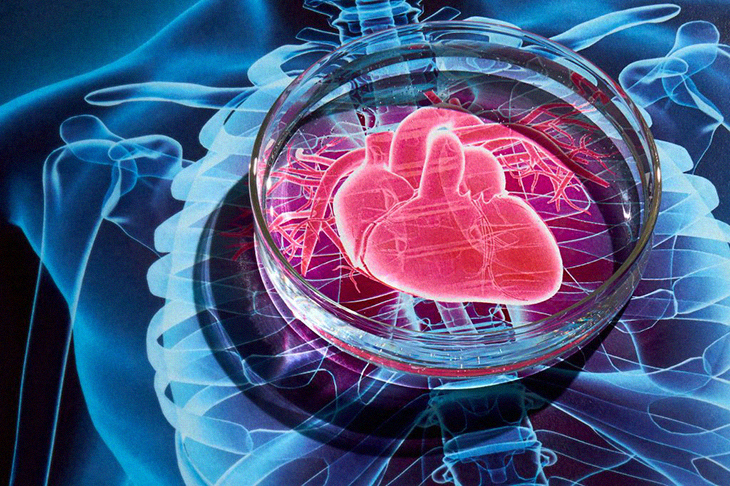
People that eat ultra-low carb diets are known to have lower rates of obesity and type 2 diabetes, as well as improved HDL cholesterol levels. These are linked to having lower risks for heart disease too.
Of course heart health also depends on what you are really eating. The New England Journal of Medicine published research that shares that ‘low-carb diets based mostly on plant sources of fat and protein (like avocados or nuts) can lower heart disease risk by 30%.’ Of course these types of benefits aren’t the same for those who eat higher animal-based fats and proteins like butter, bacon and steak.
The American Heart Association also shares that people that eat too much saturated fat – which is common for those on ketogenic diets because of high fat foods like butter, cheese and meat – can actually increase one’s risk for heart problems and conditions. Hultin also shares that for people that use keto diets, they need to get regularly assessed by their doctor to check their cholesterol levels.
So What’s the Bottom Line?
While using the ketogenic diet definitely has its short-term perks, for those that use it for lengthened periods of time, it also has the potential to produce serious health issues. This is also the reason why health experts say that you should always consult a doctor first before going keto. Hultin explains, “In general, if a person follows a ketogenic diet, they should only do so for a brief time and under close medical supervision.” So while the diet works, you need to make sure that you are following it with all the proper guidelines in place, and hand in hand with a medical professional.

